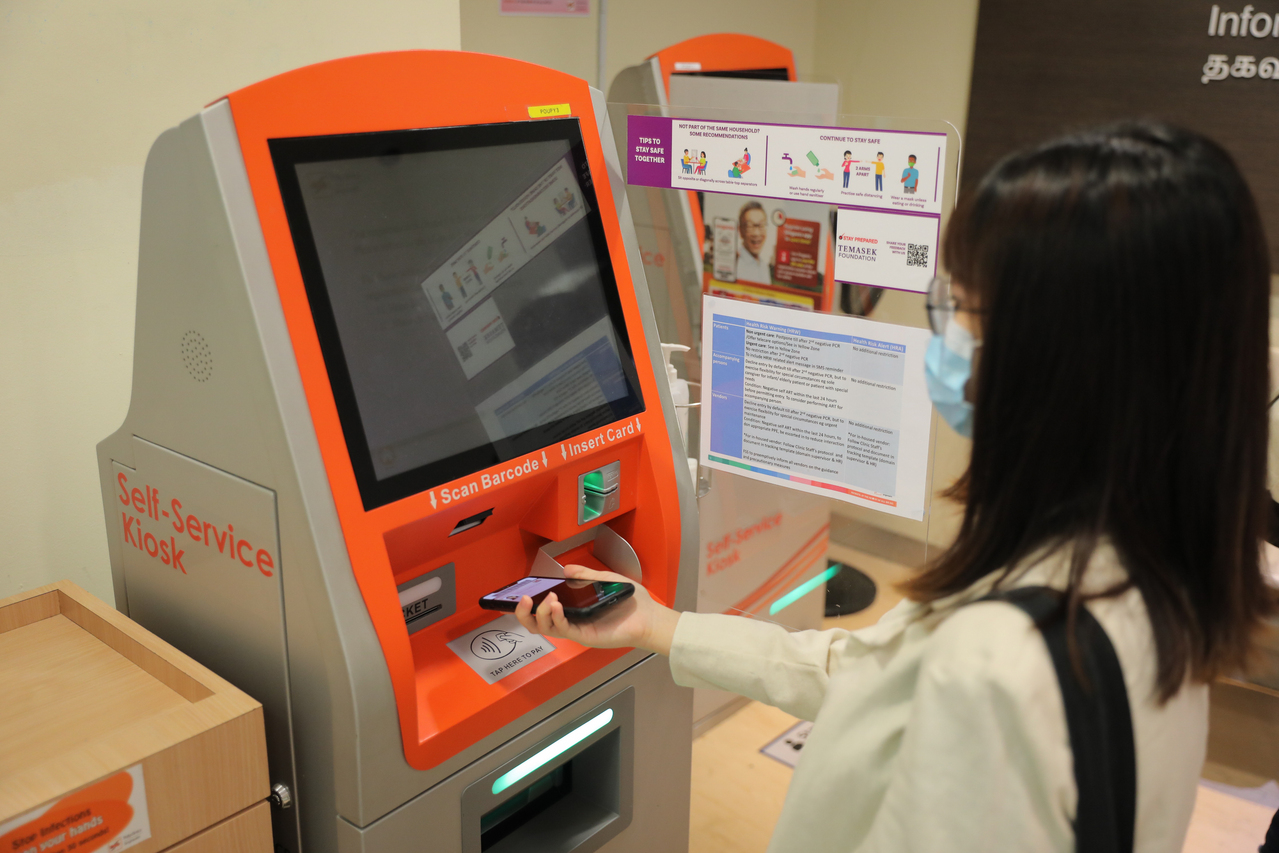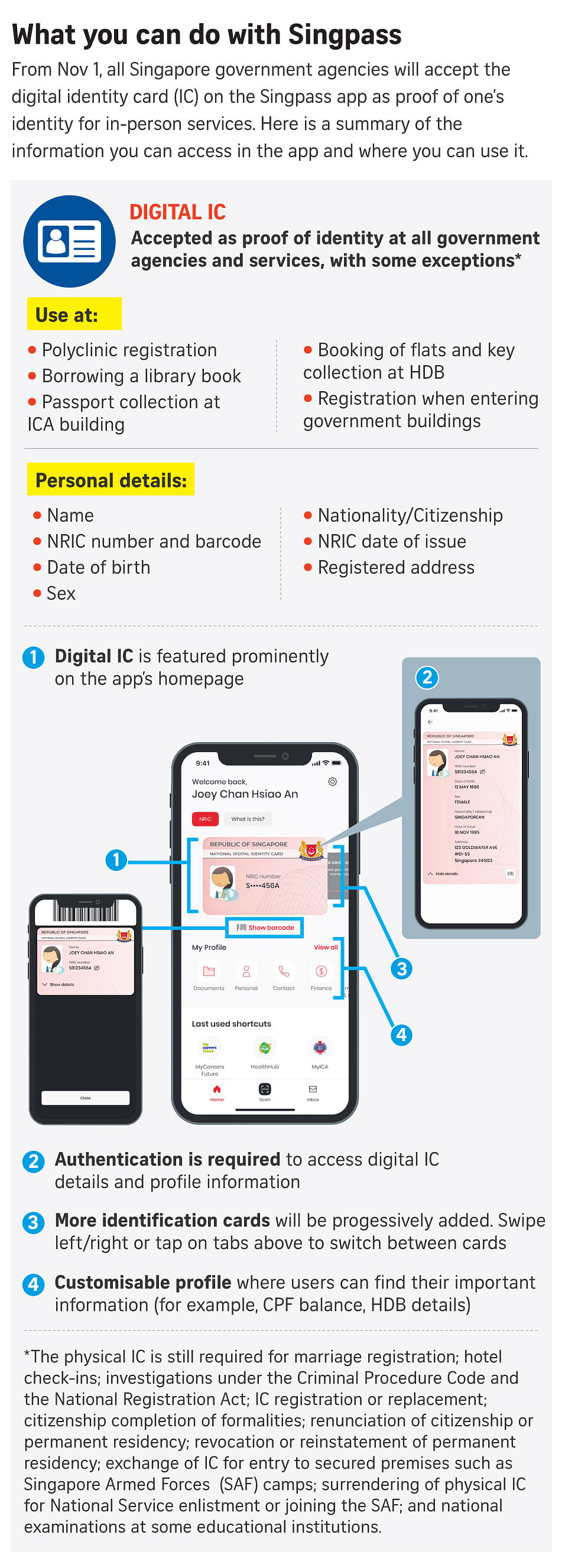Singpass users welcome acceptance of digital IC at more places in Singapore
Sign up now: Get ST's newsletters delivered to your inbox

Besides serving as a digital version of the IC, the Singpass app can also be used to share personal information with various entities using the MyInfo feature.
ST PHOTO: ONG WEE JIN
SINGAPORE - IT trainer Kendra Ong used to fret that she might leave her identity card (IC) behind whenever she had to use it.
The 67-year-old often needed to produce her IC to have the bar code scanned when she visited polyclinics for check-ups, or to use ActiveSG sports facilities.
But since she discovered the digital IC feature in the Singpass app a few weeks ago, she started leaving her IC at home to keep it safe.
"The digital IC is very convenient to use and I don't have to worry about whether I might lose my physical IC when I take it out," she said in Mandarin.
"Now, it's only when I visit the bank that I have to remember to bring my physical IC. I tried using the digital IC there recently, but was told it was not accepted yet."
From next Monday (Nov 1), most government agencies will accept digital ICs when individuals use or apply for public services in person.
The digital IC feature was added to the Singpass app in May last year, but it took some time for it to gain acceptance as a form of identity verification.
The Smart Nation and Digital Government Office as well as the Government Technology Agency, which developed Singpass, have been working with public agencies to scale up efforts to have the digital IC accepted.
The Government is also in talks with private sector industries on using the digital IC at more places, including banks.
Besides serving as a digital version of the IC, the Singpass app can also be used to share personal information with various entities using the MyInfo feature.
This makes it easy to quickly fill in online forms or authorise the sharing of specific pieces of information by scanning a QR code.
Despite the large amount of personal information accessible through the Singpass app, users like Ms Ong are not worried.
"There are layers of security before you can view the detailed information. I use the biometric iris scanner to unlock my Android phone and it's quite secure," she said.
"I am also quite careful with my phone. I don't have the habit of carrying it in my hand and rarely do so. It's always kept in my bag."
Madam Rahjee Chalson, 61, a senior staff nurse at SingHealth Polyclinics, agreed.
"My personal data is safe as I have to key in my Singpass PIN in order to gain full access to my digital IC and other information," she said.
"If I lose my phone, I will lodge a police report and suspend my mobile number to prevent any unauthorised usage."
Users who misplace their phones can also set up Singpass on a new device, which will automatically log the lost device out of the app.
For Madam Rahjee, the digital IC also makes her work a little easier as patients who visit the polyclinic can register for their appointments or verify their identity even if they forget to bring their physical IC, as long as they have the Singpass app installed.
Mr Frederic Ho, vice-president for the Asia-Pacific region at identity verification company Jumio, said wider acceptance of the digital IC and MyInfo features will result in cost savings for firms when interacting with clients as it cuts down on time and manpower needs.
But firms will also have to train their staff to be familiar with new means of verification to prevent fraud through the spoofing of a digital IC, he added.
The app comes with various security features to make it more difficult to fake - screenshots and screen recording cannot be done on Android phones, and the holographic lion crest will not be animated if a user performs a screen capture on an Apple iPhone.
However, it would still be easier for a fraudster to replicate the digital version than to print a physical fake IC, Mr Ho noted.
"Education efforts for the people who need to verify this information may take some time," he said.
"When we walk into a mall now, the security officers know how to check our vaccination status and check-in on the TraceTogether app. Similarly, for digital IC acceptance, that process will have to be in place."
Mr Ho added that digital identity verification systems like Singpass are increasingly being accepted by private sector organisations such as financial services that handle personal data to fulfil know-your-customer (KYC) requirements.
"Digital identities are already accepted in many countries as a valid means of proving one's identity and a form of KYC, including in Europe. This is the right step for us to take, to move towards being a smart nation."



